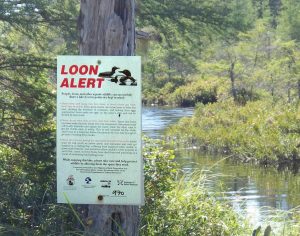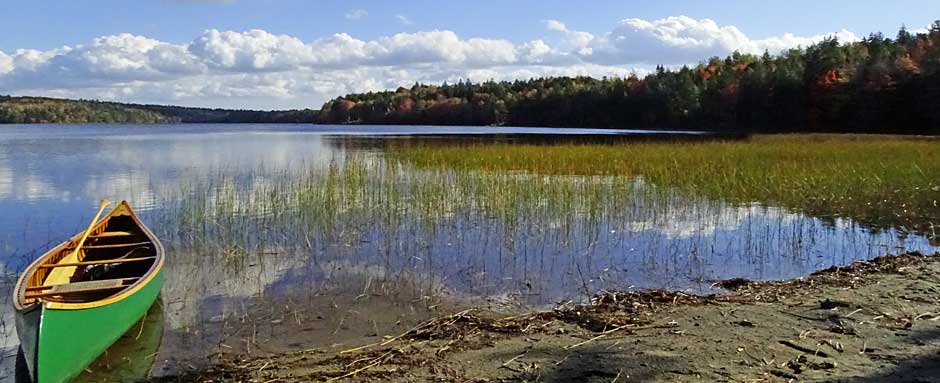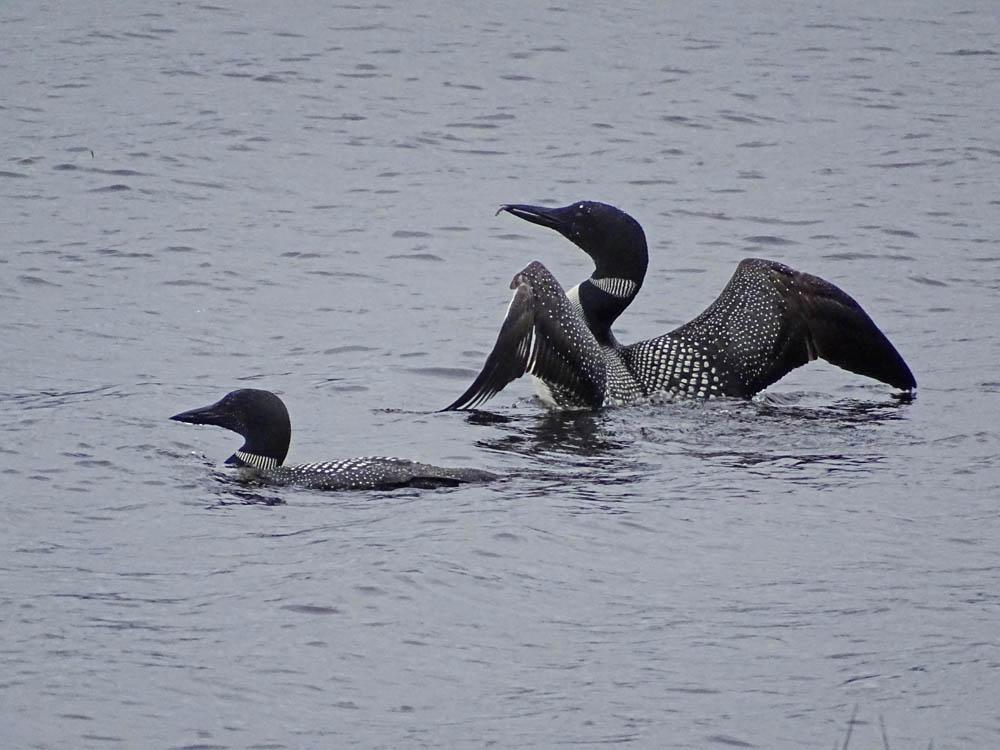Sandy Lake is 74 hectares in area, good for one pair of loons, usually not more and one pair of loons have been observed to nest on Sandy Lake for many years including 2020.*
*Note, Aug 7, 2020: I have been told that in fact there were two pairs of loons nesting at opposite ends of Sandy Lake until about 5 years ago, but subsequently, only one pair. Says Joe Kerekes: “In unproductive lakes in southwest Nova Scotia, such as those in Kejimkujik National Park, loons usually nest only on lakes greater than 40 hectares (100 acres). It is uncommon to find more than two pairs of loons on lakes of less than 80 hectares. During our studies in this region we were unable to find nonbreeding territorial adult pairs on lakes less than 25 hectares. Loons that live on smaller lakes will often fly to larger lakes to feed.” Currently, Sandy Lake can probably be considered moderately productive so area-wise it lies at transition between lakes supporting 1 pair and and lakes supporting 2 pairs of loons.
Chicks hatch about the beginning of July, and two adult loons with one chick were observed on Sandy Lake until recently.
I saw two adults close to shore at Sandy Lake Beach Park a few days ago; I could not see any chicks. I inquired of some local residents and was told that they had seen the two adults with one chick until about 2 weeks ago, but after that the chick was missing and has not been seen since.

Sign posted by Hubley Big Lake – we could use a few of them at Sandy Lake!
Click on image for larger version ad to read the text on the sign.
So it seems pretty clear that the chick didn’t make it. I am told there was a similar outcome in 2019. We can hope – and plan – for a better outcome next year.
There are many possible explanations for the loss of the one chick seen earlier, amongst them enhanced predation by excessively high populations of Bald Eagle in NS, another, speed boats, of which there are one or two on Sandy Lake.
Common Loons in general are precarious in NS, one factor being mercury poisoning which is most severe on highly acidic lakes. Sandy Lake has a more favourable pH, a factor which makes it attractive to the endangered Atlantic Salmon as well.
So let’s do what we can to keep our lake attractive to these iconic species!
Some Links
The Common Loon
A 1992 document by Joe Kerekes describing habits and habitats of loons on NS lakes.”
About the Common Loon
By: Lisa M. Genier on Adirondack Council website, October 18, 2019
Can boats harm loons?
FAQ on Canadian Wildlife Federation
FAQ’s about LOONS
Post on The Lower Beverley Lake Association, Jan 2012
Loons are back
Post on Nova Scotia Forest Notes, April 11, 2017
Is it a Loon?
By Loon Preservation Committee, New Hampshire. Good photos of Loon Chicks at 1,2,5, 8, 10 weeks
A Loonie For Your Thoughts! Learning About Nova Scotia’s Lakes and Loons
Bird Studies Canada

